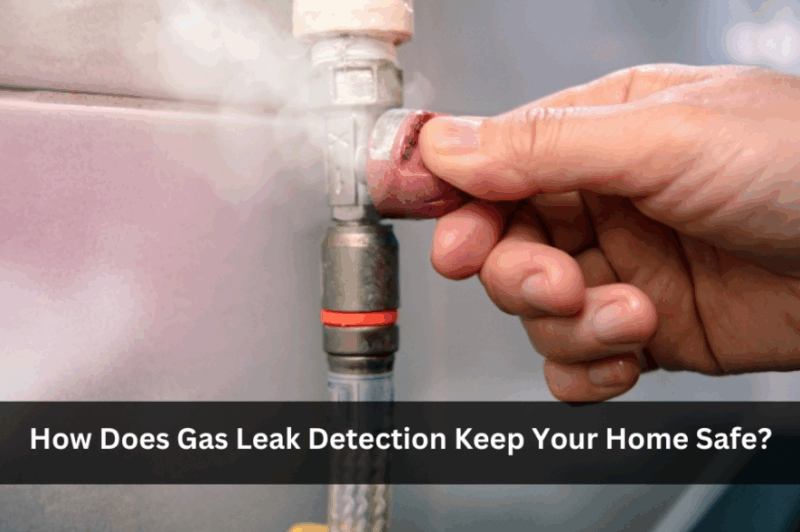Think of the miles of hidden pipework threading beneath your floors and inside your walls, quietly keeping your home warm and your stove burning. Most days those lines work flawlessly, but a single loose joint or hairline crack can turn them into stealthy sources of danger.
Before any rotten-egg smell reaches your nose or any alarm starts beeping, a silent threat may already be drifting through the rooms you cherish.
Gas leaks—a bit of a hidden problem, really. You don’t see them. You might not even smell them straight away.
But they’re there, sometimes for days, even weeks. And without early gas leak detection specialists, things can spiral fast, from health risks to major property damage, or worse.
So, what does “gas leak detection” really involve? And what should homeowners actually be doing to keep things safe?
Let’s unpack the basics in plain English—no fluff, just useful stuff.
Gas is useful, but it’s also dangerous if ignored
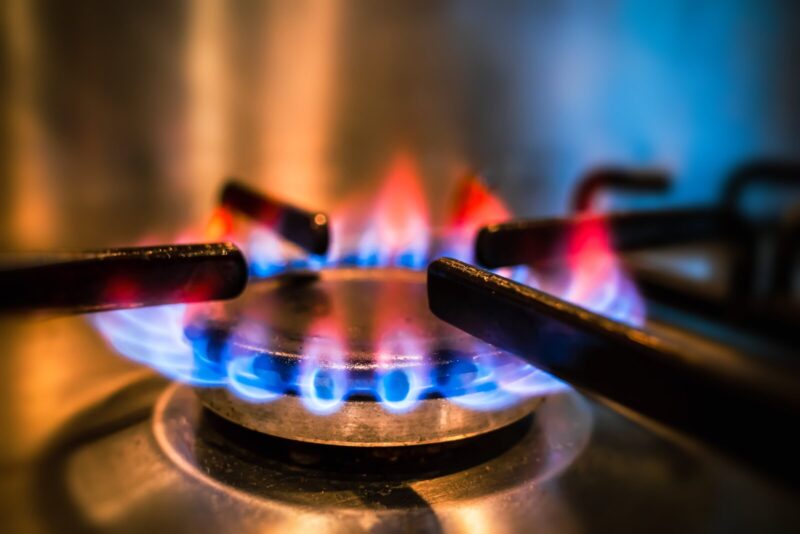
We use gas every day for heating, cooking, and hot water. It’s efficient and reliable, sure, but also volatile if handled the wrong way or left unchecked. Even a small leak can lead to a fire.
In enclosed spaces, it can also lead to carbon monoxide poisoning, which is harder to detect.
Here’s the thing: most gas leaks don’t start with a bang.
They creep in quietly. Maybe a cracked pipe underground. Or a connector behind the heater that’s worn out.
Some people don’t notice until they feel a bit dizzy indoors, or spot that the gas bill’s suddenly gone up.
There’s also the compliance side.
If something goes wrong and a property owner hasn’t followed safety regulations, insurance might not cover it. And there could be fines or legal fallout.
Signs that suggest you might have a gas leak
Not every gas leak is dramatic. In fact, most of the early signs are easy to miss—unless you know what you’re looking for.
Some of the more common indicators:
- A weird smell, like rotten eggs. Gas is odourless, but suppliers add a chemical to help people detect leaks
- Strange hissing or high-pitched sounds around gas pipes or appliances
- Discoloured patches on the lawn or garden if it’s leaking underground
- Headaches or feeling light-headed when indoors, especially around appliances
- A sharp rise in your gas usage on the bill
These might not all show up at once. But even one or two should be enough to raise concern.
And one important point—don’t use electrical switches, open flames, or appliances if you suspect a leak. Ventilate the area, leave the premises, and get someone qualified to check it out.
Legal responsibilities for gas safety
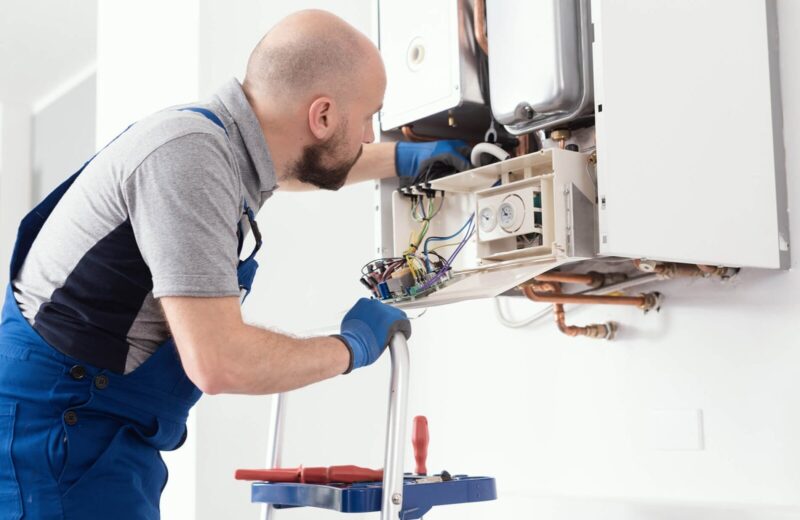
If you’ve got a place in New South Wales—doesn’t matter if you live in it or rent it out—there’s a few rules around gas you’ve gotta be across.
They’re not just suggestions either. The law’s pretty clear on who can do what, and if something goes wrong, it’s the owner or manager on the hook.
According to official state regulations, outlined clearly under gas safety requirements, you must:
- Use a licensed gasfitter for any installation, alteration, or repair
- Ensure gas appliances meet the right Australian Standards (usually AS/NZS 5601)
- Keep appliances in safe, working condition
- If renting, ensure tenants have access to safe and working gas systems at all times
Neglecting these responsibilities doesn’t just risk safety—it can lead to fines or legal action.
And again, most insurers won’t cover damages if the system wasn’t maintained properly or installed by someone unlicensed.
What do professional gas leak checks involve?
So, let’s say you decide to bring in a gas detection specialist. What exactly do they do? It’s not just waving a sensor around.
Most inspections follow a series of practical checks:
- Gas sensors or sniffer tools that can pick up even tiny amounts of methane or propane
- Pressure testing, where sealed systems are monitored for drops over time
- Soapy water solution tests—yep, literally soap bubbles—on joints or pipes to spot leaks
- Infrared or thermal imaging, especially if there’s a suspicion of a leak inside a wall or under flooring
- Visual checks for corrosion, stress fractures or dodgy connections
Good tradespeople will also give advice on whether your setup meets today’s compliance standards. Sometimes, even if things are working, older fittings or materials might not be up to code anymore.
Common causes of gas leaks in homes
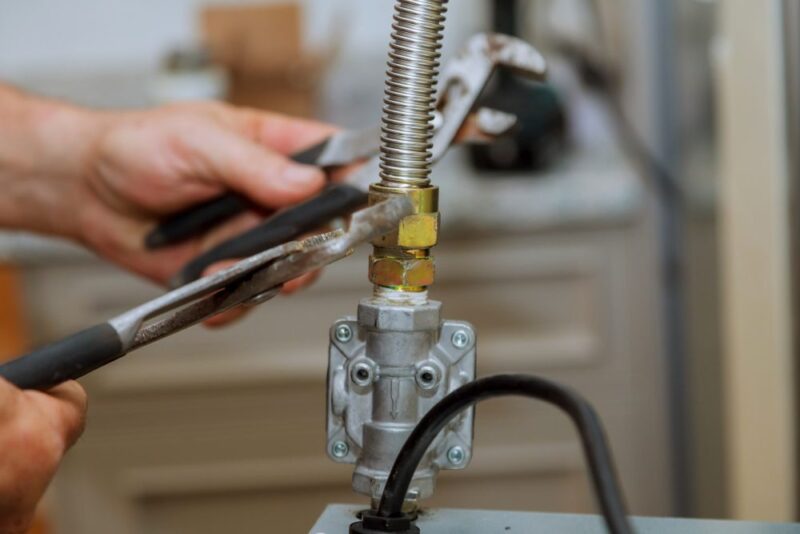
Let’s not forget the gear itself—heaters, ovens, hot water systems. All appliances have a lifespan, and older ones tend to cause more trouble.
Some common causes include:
- Faulty pilot lights—they don’t always stay lit or may leak small amounts of gas
- Clogged burners or dirty filters, especially in portable or wall-mounted heaters
- Worn-out seals or connectors, which dry out or crack over time
- Poor ventilation in enclosed areas, allowing gas or carbon monoxide to build up
Looking into broader gas heating problems can help identify if your system’s showing early signs of trouble.
Also worth noting—some older homes still have appliances from decades ago. Even if they seem to work, that doesn’t mean they’re safe by today’s standards.
Tips for keeping your property gas-safe all year
You don’t have to be an expert to stay ahead of gas issues. A few simple habits go a long way.
Here’s a rough checklist:
- Book annual servicing of all gas appliances—ideally before winter starts
- Install a carbon monoxide alarm, especially near bedrooms or living areas
- Keep vents and flues clear, both inside and out
- Know where your main gas shut-off valve is and how to use it
- Keep a record of service dates and repairs—this helps with insurance, too
If you’re renting or managing a property, schedule safety checks between tenancies. And for newer homes or renovations, always request compliance certificates from your tradespeople.
Wrapping it up
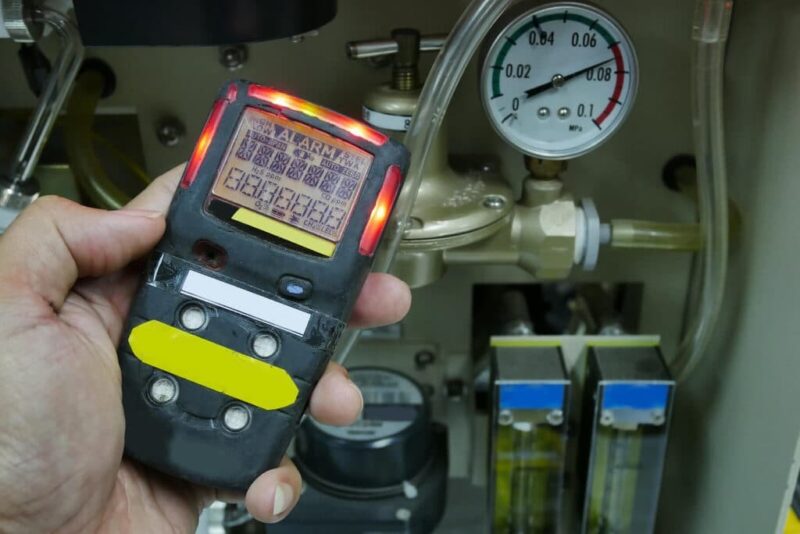
Gas leak detection isn’t a luxury—it’s a necessity. Whether it’s spotting early signs, following NSW regulations, or booking in a licensed check-up, it all comes down to staying ahead of the risk.
A bit of attention now can prevent a lot of expense (and stress) later. So if something doesn’t feel quite right—or if your appliances haven’t been looked at in years—it’s probably time to make the call.
